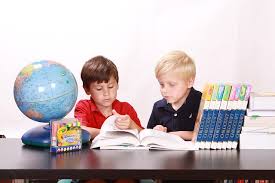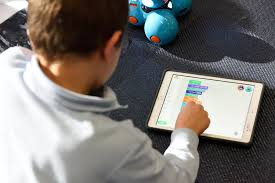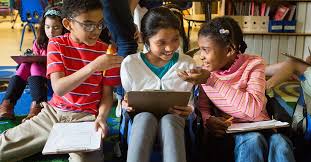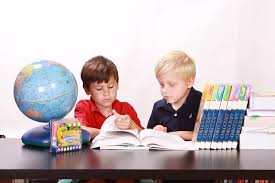What games are beneficial to cognitive growth?
Here are some play ideas to support your child’s cognitive development:
- Play simple board games like ‘Snakes and ladders’ with your child, or simple card games like ‘Go fish’ or ‘Snap’.
- Read books and tell jokes and riddles.
- Encourage stacking and building games or play with cardboard boxes.
What are cognitive learning activities? Examples of cognitive learning strategies include:
Asking students to reflect on their experience. Helping students find new solutions to problems. Encouraging discussions about what is being taught. Helping students explore and understand how ideas are connected. Asking students to justify and explain their thinking.
What activities promote cognitive development?
10 Ways to Promote Your Child’s Cognitive Development
- Sing-a-longs. Sing songs with your child and encourage him to sing along with you.
- Identify Noises.
- Practice the Alphabet.
- Practice Counting.
- Practice Shapes and Colors.
- Offer Choices.
- Ask Questions.
- Visit Interesting Places.
What other games are suitable for students with special needs?
The 10 Best Toys and Games for Children with Special Needs
- Fidget Toys Sensory Bundle Set.
- Tumbling Monkeys.
- Bilibo Child Seat.
- Feelings in a Flash.
- Vtech Tote & Go Laptop.
- Teachable Touchable Texture Squares.
- Basic Skills Busy Board.
- Counting and Sorting Bears.
What games are beneficial to cognitive growth? – Additional Questions
What are the activities for learning disabilities?
A kid with a learning disability needs a confidence-boost which makes them feel they are no less. Theatre and drama are one such activity that can help kids with dyslexia a lot. While reading scripts they are able to improve their reading fluency, vocabulary and reading accuracy, without finding it to be a burden.
What games can you play with an autistic child?
Ten Toys and Games for Autistic Toddlers and Children
- Sign up for AmazonSmile and designate Autism Speaks as your charity of choice.
- Simple First Words: Let’s Talk.
- 2-in-1 Snug ‘n Secure Swing.
- Smart Tablet.
- Sound Puzzles.
- Jumpsmart Electronic Trampoline.
- Calico Critters Family Camper and Cherry Cruiser.
- Hungry Hungry Hippos.
What activities do children with special needs do?
Board games, card games, and other types of games can be a lot of fun for children of all abilities. Board games, in particular, can be helpful for children with special needs because they give the child a structured activity to do and help them work on their social skills.
How do you adapt a game for a disabled child?
Adapting common games so everyone can play
- Kids with disabilities want to play, just like any other kids. They want to interact, be active, socialize, make friends and join in the fun.
- Playing tag. Instead of trying to touch one another, use a safe and soft object like a foam pool noodle.
- Hide and seek.
What games can you play with a parachute?
7 Fun Parachute Games for Children and Seniors
- Mushroom. This is a great starting activity to get everyone used to moving the parachute and working together.
- All Change. Looking for an icebreaker?
- Cat and Mouse.
- Popcorn.
- Sharks and Lifeguards.
- Merry-Go-Round.
- Nursery Rhymes.
How do you engage gifted and talented students in the classroom?
Five Ways to Support Gifted Students in Your Classroom
- Learn how gifted students think.
- Created tiered assignments for students.
- Include a variety of levels in your classroom library.
- Utilize their talents and interests.
- Explore real-word application.
- Additional Resources.
How do you teach students with learning disabilities?
Strategies
- Allow student to use a word processor with a spelling checker.
- Grade written assignments for ideas only or provide two grades: one for content and one for technical skills.
- Provide advance notice of written assignments.
- Encourage student to use the Writing Lab and to get tutoring.
How do you teach students with specific learning disabilities?
Academics & Organization
- Break learning tasks into small steps.
- Probe regularly to check understanding.
- Provide regular quality feedback.
- Present information visually and verbally.
- Use diagrams, graphics and pictures to support instruction.
- Provide independent practice.
- Model what you want students to do.
How do you handle students with learning disabilities?
Tips for dealing with your child’s learning disability
- Keep things in perspective. A learning disability isn’t insurmountable.
- Become your own expert.
- Be an advocate for your child.
- Remember that your influence outweighs all others.
- Clarify your goals.
- Be a good listener.
- Offer new solutions.
- Keep the focus.
How do you teach a child with intellectual disability?
Teaching students with an intellectual disability
- Using small steps.
- Modify teaching to be more hands-on.
- Think visual.
- Use baby steps.
- Incorporate more physical learning experiences.
- Start a feedback book or chart.
- Encourage music in the classroom.
- Provide visual stimulus.
What are the 4 major types of learning disabilities?
Learning disabilities usually fall within four broad categories:
- Spoken language-listening and speaking.
- Written language-reading, writing, and spelling.
- Arithmetic-calculation and concepts.
- Reasoning-organization and integration of ideas and thoughts.
What are the top 5 learning disabilities?
Keep reading to find out the 5 most common learning disabilities special education and their symptoms.
- Dyslexia. Dyslexia is probably the number one learning disorder auditory processing, visual processing disorders may have trouble that affects children and adults.
- ADHD.
- Dyscalculia.
- Dysgraphia.
- Dyspraxia.
How can I help my child with moderate learning difficulties?
Encourage, praise, reward – not just for work and achievements but for positive behaviour too. Building on the child’s knowledge and understanding. Ensuring learning objectives are realistic for every lesson, and that success is achievable. Giving clear instructions.
What is cognitive disability?
A cognitive impairment (also known as an intellectual disability) is a term used when a person has certain limitations in mental functioning and in skills such as communication, self-help, and social skills. These limitations will cause a child to learn and develop more slowly than a typical child.
What are the 7 main types of learning disabilities?
In particular, psychology professionals should study these seven learning disabilities:
- Dyslexia.
- Dysgraphia.
- Dyscalculia.
- Auditory processing disorder.
- Language processing disorder.
- Nonverbal learning disabilities.
- Visual perceptual/visual motor deficit.
What is the most common learning disability?
The most common learning disorder is dyslexia, affecting approximately 80 to 90 percent of all learning disorders.
What is the difference between learning disability and learning disorder?
Learning disorder is a diagnostic term. A licensed professional — usually, a psychologist — diagnoses a person with a learning disorder based on a list of symptoms. Learning disability is a legal term. A public school identifies a student with a learning disability.




